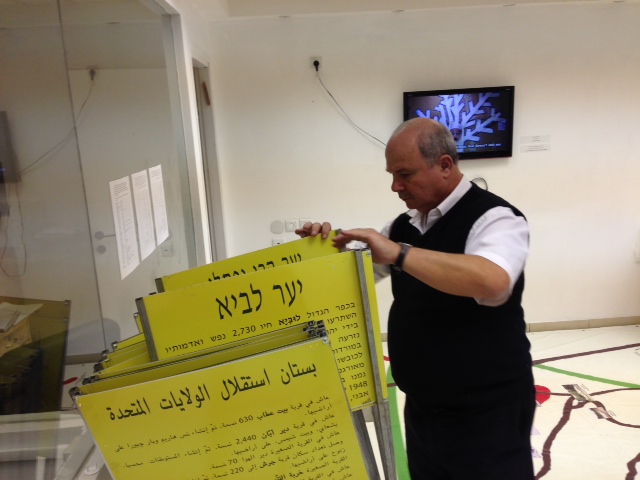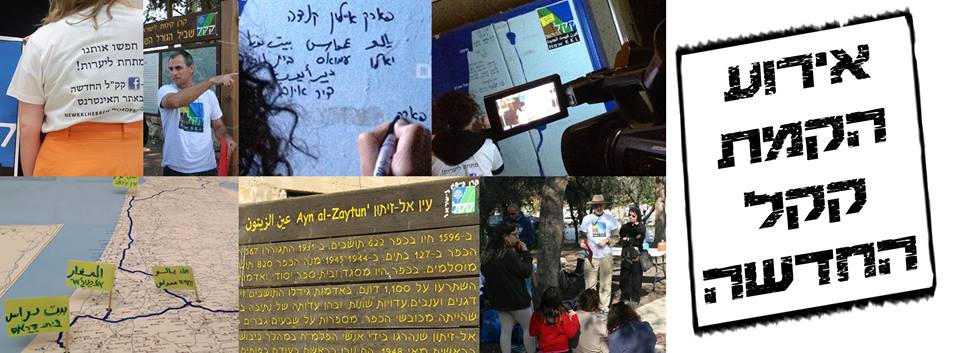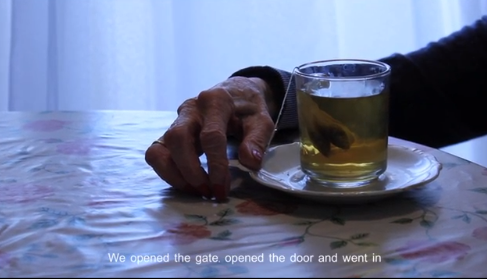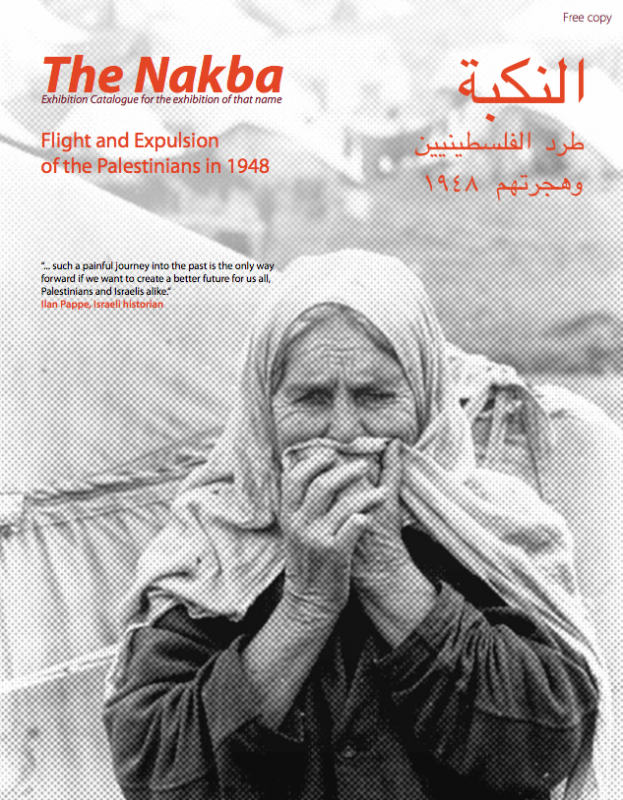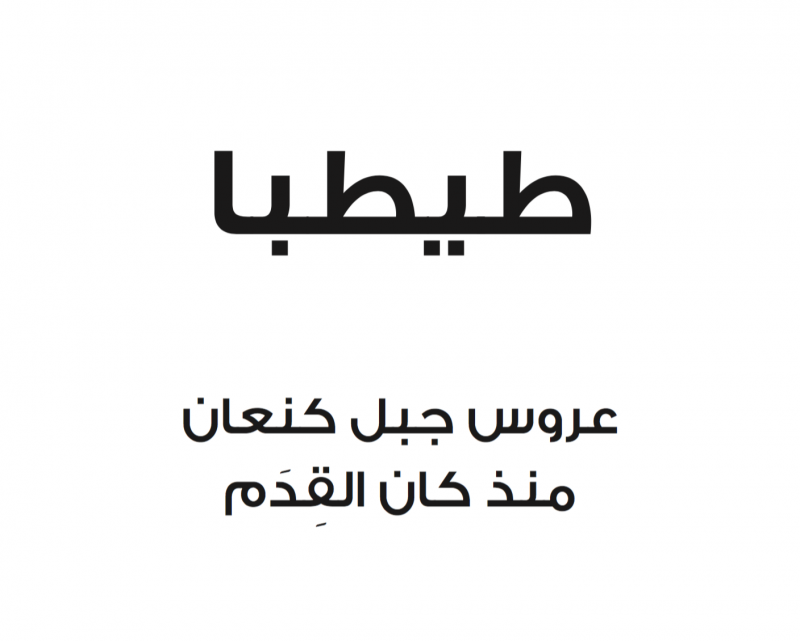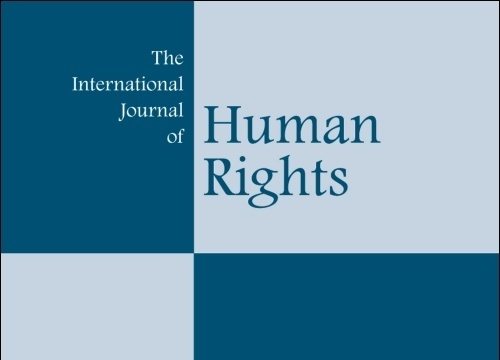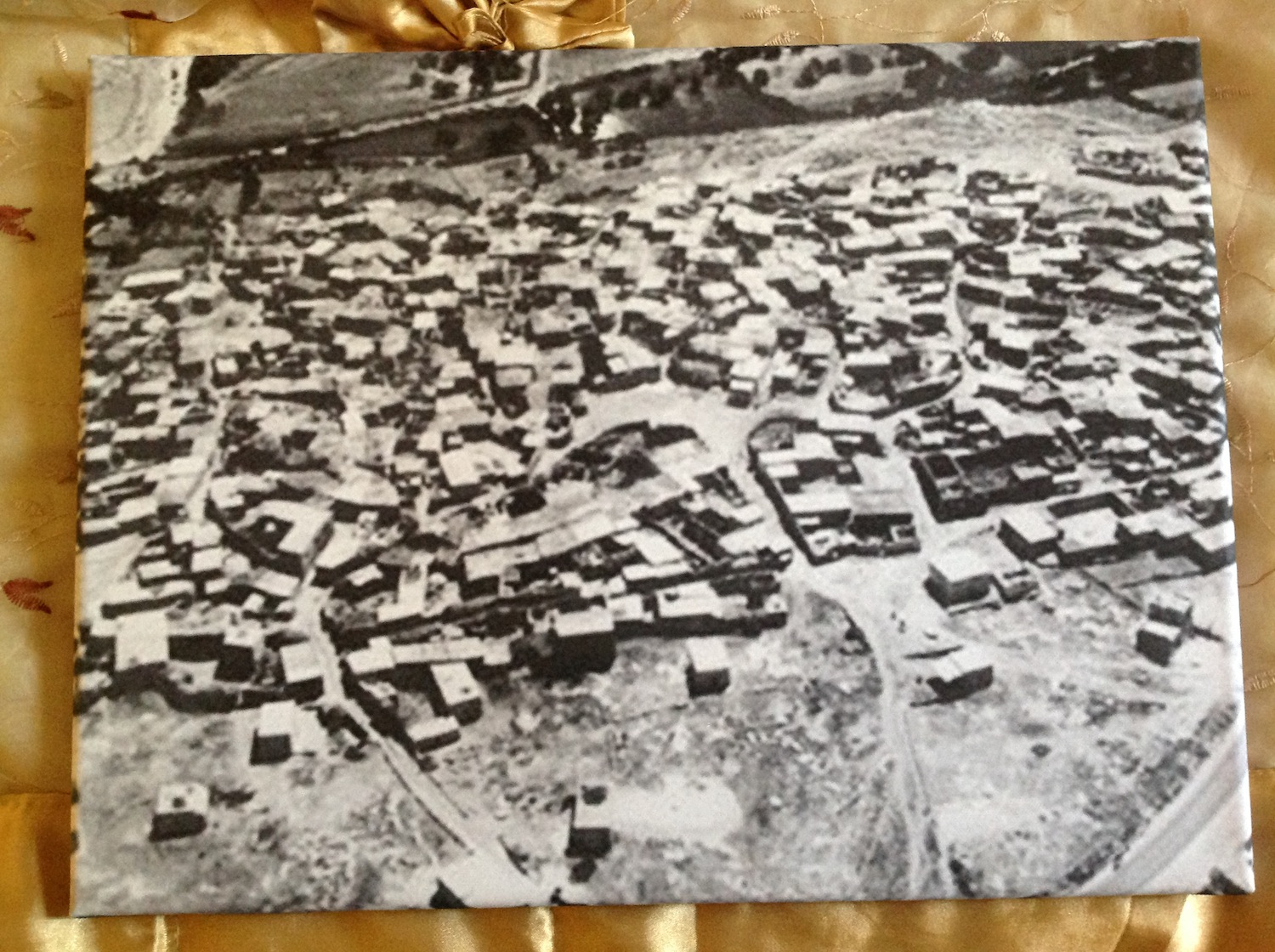A table set for none
Author: Mali DeKalo 01/2014
I decided to make the video because of Zochrot while I was working on the exhibit - the location, the context it provided. I’m not sure that a different context would have brought it out, neither from me nor from my mother. The story she told me years ago when she agreed to talk about certain things was that when they arrived in the country they were brought to the Pardess Katz transit camp, placed there, and she told me how terrible conditions were in the camp, that in some way they reminded her of the concentration camps and she refused to remain there. After many requests they were approved by the Jewish Agency to receive an apartment. It gave them an address in Jaffa and a key, they went to Jaffa, entered a large Arab house which was surrounded by a fence? She said it was a nice house but that a large dining table and chairs stood in the courtyard, set with plates on which were remnants of food. They felt it had been hurriedly abandoned and were thunderstruck. They refused to live in a place that reminded them of the invasion of their home in Poland and their expulsion from it. They returned the key and went to live in a packing house.
Human rights NGOs in Israel: collective memory and denial
Author: The International Journal of Human Rights Volume 18, Issue 1, 2014 2014
This article discusses the complex interrelations between human rights, memory, forgetting and denial by analysing the discourses and practices of Israeli human rights organisations with respect to the past of the Palestinian people, particularly the events that took place in 1948. It examines how and why Israeli organisations dialectically remember and repress elements of the local past, and align themselves with the prevailing national silencing of the discussion on the Palestinian refugees’ future rights, particularly their right of return. The article concludes by exploring the implications of these practices on the organisations’ capacity to significantly impact the Israeli-Palestinian future.


